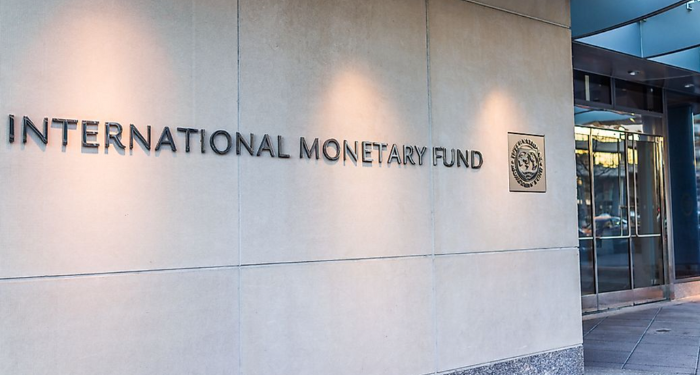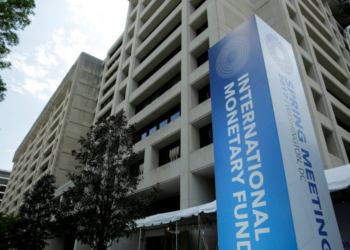The International Monetary Fund (IMF) has raised red flags over Nigeria’s growing use of crypto assets for cross-border transactions, citing substantial risks to capital flow management, monetary stability, and regulatory effectiveness—especially in emerging markets.
The warning comes amid a staggering rise in the global crypto market, which ballooned from $211 billion in January 2020 to $3.4 trillion by December 2024—a 1,511% surge over five years.
This is according to the IMF’s latest country report on Nigeria, reviewed by Nairametrics Research.
Citing Chainalysis’ 2023 Global Crypto Adoption Index, IMF noted that Nigeria ranked among the top three globally, with over $59 billion in crypto transactions between July 2023 and June 2024. A 2024 survey by Consensys and YouGov further showed that 62% of Nigerian crypto users have owned Bitcoin, followed by Binance Coin (51%), Ethereum (41%), Dogecoin, Tether, and Solana.
The IMF observed, “Given the growing volume of crypto asset market activity in Nigeria, a comprehensive policy and regulatory framework is necessary to address the underlying risks.”
Nigeria’s global risk profile validates IMF concerns
To validate the IMF’s concerns, a closer look at Nigeria’s global fraud and security rankings is instructive:
- Money laundering – Nigeria remains on the FATF Grey List, indicating strategic weaknesses in anti-money laundering (AML) and counter-terrorist financing (CFT) frameworks.
- Terrorism – In the 2025 Global Terrorism Index, Nigeria ranked 6th globally with a score of 7.658, highlighting ongoing risks.
- Fraud – According to Sumsub’s 2024 “Fraudlympics,” Nigeria ranked first globally for crypto fraud growth (1,056%), identity theft (748%), and forced verification scams (1,091%).
Economic implications of undetected crypto-driven capital outflows
The informal and largely unregulated use of crypto assets in Nigeria has macroeconomic consequences that stretch beyond the crypto ecosystem.
- Foreign exchange inflow/supply distortion
Crypto-based capital flight channels FX inflows outside the formal system. This not only weakens Nigeria’s foreign exchange liquidity but could also contribute to the estimated 90% of dollar inflows that Bureau De Change (BDC) operators allege are unrecorded, according to a report by Nairametrics. These flows bypass the official reserves and weaken Nigeria’s FX position.
In addition, crypto usage increases dollar demand in the informal market, fueling speculative demand and naira volatility. This widens the gulf between the official and parallel market rates.
- Revenue generation loss
Untaxed gains from crypto transactions represent forgone revenue opportunities. If regulated properly, crypto gains could contribute to GDP through the service sector and be taxed under capital gains tax or withholding tax.
- Weakened monetary policy control
When large volumes of financial activity occur outside regulated channels, the CBN’s grip on inflation, interest rates, and money supply could weaken. This may diminish the impact of capital control measures and complicate liquidity management.
- Illicit financial flow risks
The anonymity of crypto assets makes them attractive for illicit financial flows—ranging from money laundering and tax evasion to terrorism financing—posing risks to Nigeria’s financial credibility and international standing.
Key initiatives by SEC – Nigeria’s regulatory response
Recognizing the urgency, the Securities and Exchange Commission (SEC) under the leadership of Director General, Dr. Emomotimi Agama has been vocal and has taken active steps to regulate the ecosystem. In light of these risks, Nigerian authorities have begun tightening regulatory controls.
- Launch of cNGN stablecoin – Early 2025
Nigeria’s first naira-pegged stablecoin launched via licensed exchanges to offer a local digital alternative for payments and trade. - “Crypto Smart, Nigeria Strong” initiative – June 2025
A national crypto education and compliance program aimed at collaboration, innovation, and investor protection. - Co-created framework for stablecoins – June 2025
SEC is developing a formal structure for regulating naira-backed stablecoins, ensuring transparency and verifiable reserves. - Framework for VASPs (virtual asset service providers) – June 2025
A structured licensing regime now applies to all crypto platforms, including registration and operational guidelines. - Blockchain for regulatory transparency – February 2025
The SEC is integrating blockchain technology to improve capital market oversight and ensure data immutability. - Collaboration with IOSCO & global bodies – February 2025
Nigeria is aligning with international standards to strengthen cross-border enforcement. - Mandatory VASP registration & reporting – May 2024
All crypto firms must maintain a physical presence in Nigeria and submit regular transaction data.
IMF recommendations to Nigerian authorities
The IMF’s advisory to Nigerian authorities outlines a comprehensive 9-element framework comprising 37 actionable steps to mitigate the risks associated with crypto asset activities.
- Nigeria should maintain capital flow management integrity by ensuring crypto assets do not bypass official controls.
- It must strengthen supervision by licensing all exchanges and enforcing SEC compliance.
- The government should clarify taxation rules for crypto assets to improve fiscal transparency.
- Legal certainty must be established by defining the official status of crypto assets.
- Conduct and prudential rules should be enforced to protect investors and ensure market discipline.
- Interagency coordination is needed through a unified crypto oversight framework.
- Nigeria should deepen cross-border collaboration to monitor and regulate international crypto flows.
- Authorities must track how crypto impacts the financial system and monetary stability.
- Investment in digital payment infrastructure is essential to offer secure, affordable cross-border alternatives.





















